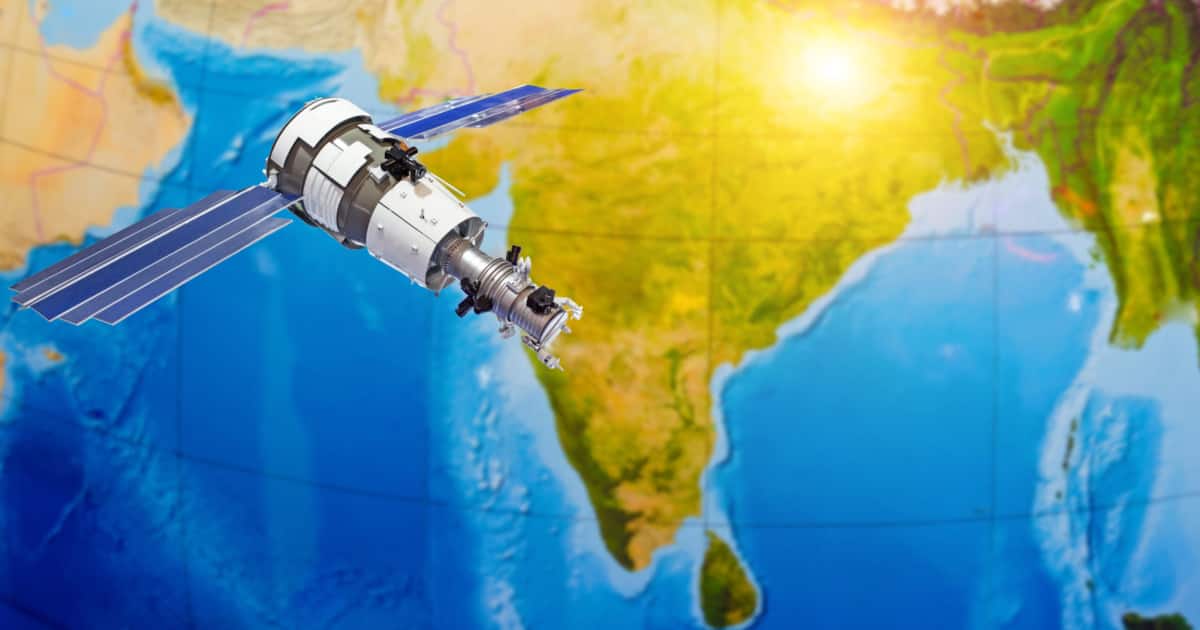Apple and other smartphone makers pushed back the adoption of India’s own satellite-based geolocation system. India is requiring tech giants such as Apple and others to make the iPhone and other smartphones compatible with its home-grown navigation system.
Apple Delays Adoption of India’s Satellite-Based Geolocation System
According to Reuters, the move was in line with the drive for self-reliance spearheaded by India’s Prime Minister Narendra Modi. The Prime Minster hopes to reduce dependence on foreign systems, such as the U.S. Global Positioning System (GPS). The government said that its home-grown navigation system, Navigation with Indian Constellation (NavIC), provides more accurate domestic navigation. Using NavIC would also benefit the country’s economy.
The report said that representatives from Apple, Xiaomi, and Samsung attended private meetings with government officials in August. During those meetings, the representatives aired their companies’ decisions to push back the adoption of India’s satellite-based geolocation system in their smartphones. Apple and the others cited the higher research and production costs required to make their smartphones compliant with NavIC. They insist there’s no way Apple and the other manufacturers could adopt it for new phones to be sold in 2023.
Smartphone Manufacturers Want More Time to Implement India’s NavIC
In the minutes of the meeting, as seen by Reuters, the smartphone manufacturers asked for more time to implement changes in their smartphone products. Most, if not all, of the manufacturers have already prepared product launches for 2023 and 2024. Therefore, implementing NavIC in their smartphone lineups for 2023 would disrupt their business and planned launches for the next two years.
Apple already supports five global and regional navigation networks, including GPS, GLONASS, and Beldou, in its current iPhone models. Although adding another one, such as India’s NavIC, is doable, Apple would need more time if it decides to do so.
Apple and other smartphone makers declined to give comments about the private meetings. However, the report said that a senior Indian government official will report a final decision in the coming days.

If three of the top makers are all balking at adoption, that suggests a technical issue blocking it. It’s likely that the positioning hardware suppliers (Qualcomm and MediaTek) don’t have the support in their current chipsets. If not, it’s likely 2 more years before the support could show up in phones.
Compare this with GPS (USA), GALILEO (EU), GLONASS (Russia), BeiDou (China) and QZSS (Japan), which are in current hardware.
Arnold:
India is fast becoming a world-class tech powerhouse. Not only has it successfully put spacecraft around the moon, it has became the first Asian country to successfully put an orbiter around Mars in 2014. Their advances in software manufacture, digital technologies, pharmaceuticals, automotive systems, naval warcraft (including an aircraft carrier), added to their spacefaring exploits, make them a regional powerhouse. It should be no surprise that they should demand that their native GPS systems be supported by Apple and other smart device manufacturers. One, perhaps two, sub-Saharan African countries may follow suit in the coming years.